












Hampton Court House Prep is about providing an educational experience centred around the child with bespoke approaches for every individual. Whether in classroom settings, extra-curricular activities or charity work, we teach the children to be well-rounded and caring and to contribute to all aspects of school life. Our day-to-day curriculum is one of the foundations of this approach. Lessons are designed to be interesting, engaging, supportive and challenging so that all children feel able to do their best. Teachers will always enable children to contribute fully to lessons, learn and demonstrate new knowledge, skills and ideas, and to shape their voice as part of a dynamic, but homely, community.
At Hampton Court House, our Years 1 – 6 curriculum is designed with the holistic development of each child in mind. We aim to cultivate a love for learning, curiosity, and confidence in our students. Central to our intent is the bilingual program for Years 1 – 4, where approximately 50% of the curriculum is delivered in French. This unique approach not only enhances language skills but also broadens cultural understanding and cognitive flexibility. Our goal is to support every child’s intellectual, social, and emotional growth through a rich and balanced curriculum where mistakes are accepted, and questions welcomed.
Our curriculum is implemented with a focus on creating an inclusive, engaging, and supportive learning environment with a sense of fun. For Years 1 – 4, the bilingual program integrates French into everyday learning, covering subjects such as humanities, science, sport and the arts in both English and French. This immersive approach helps students develop proficiency in both languages naturally and enjoyably, with in class support used to ensure all children are able to understand and access the curriculum. Lessons are structured to build on previous knowledge, ensuring a smooth progression. Within years 5 and 6 more specialist teachers are used to deliver the curriculum which allows for the development of skills necessary to start their secondary education in year 7. We employ a variety of teaching methods, including individual tasks, group work, and hands-on activities, to cater to different learning styles. Continuous assessment practices allow us to monitor each child's progress closely and provide personalised support as needed.
Impact
The impact of our carefully crafted curriculum is seen in the enthusiasm and active participation of our students. They develop strong foundation skills in literacy, numeracy, and science, along with the ability to think critically and solve problems. The bilingual program enhances their language skills and cultural awareness, giving them a broader perspective and improved cognitive abilities. Our students also grow in confidence, independence, and social skills. Regular assessments demonstrate enhanced academic progress and personal development, ensuring that students are well-prepared for the next stage of their education with a lifelong love of learning and a unique bilingual advantage.
Key contacts
Susie Byers Head of Prep sby@hchnet.co.uk
Eldon Fayers Assistant Principal | Teaching & Learning efa@hchnet.co.uk
Imogen Stone
Prep Head of Teaching & Learning ist@hchnet.co.uk
Nick Edwards Assistant Principal | Data & Assessment ned@hchnet.co.uk
Paul Pearce Deputy Head | Operations & Academic pgp@hchnet.co.uk
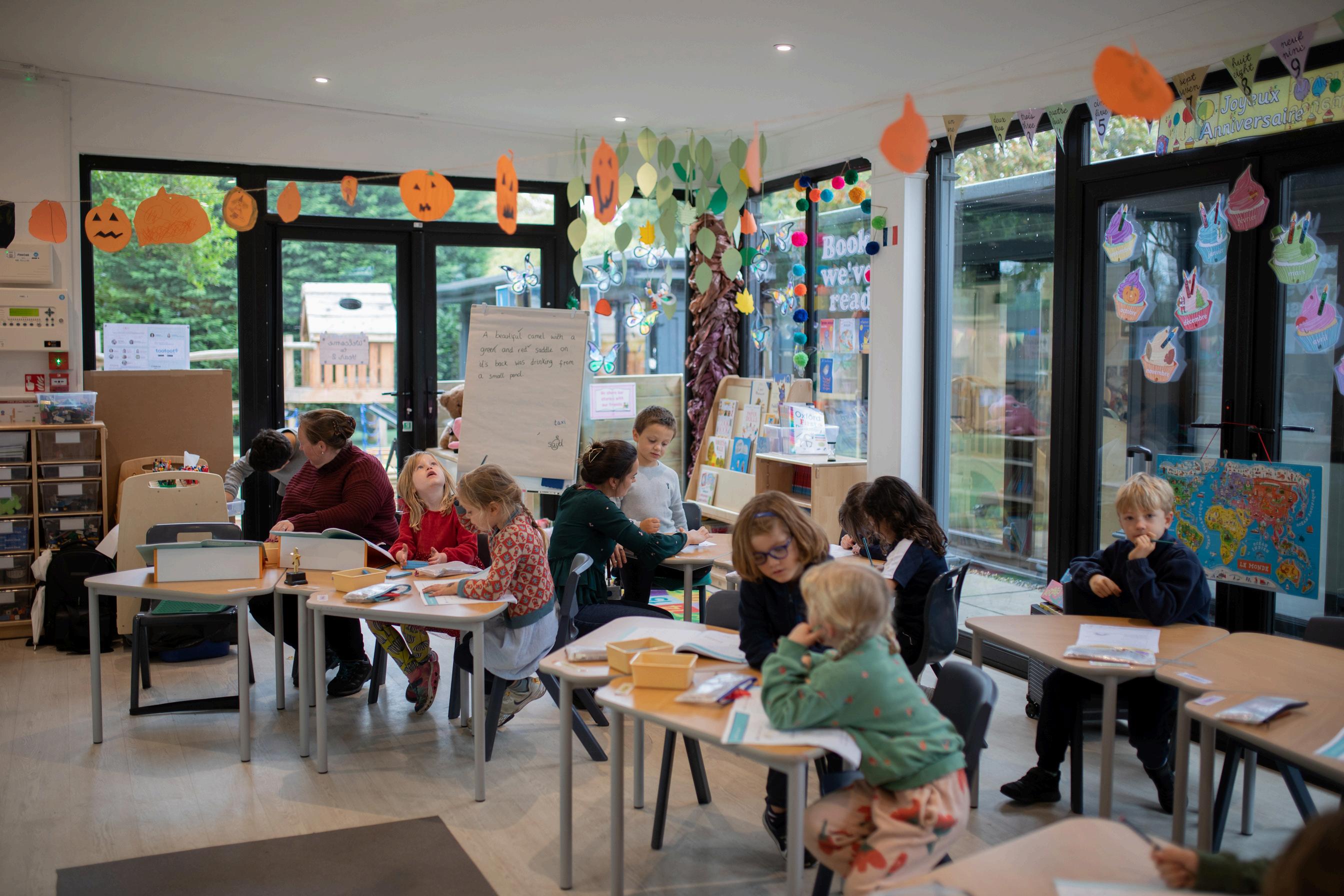

Year 2 Curriculum Overview Summer Term 2025
Students will be learning about the wonderful characters created by textile artist Donna Wilson this term. In response, they will draw on their imagination and creativity to design and stitch their own soft toy. Pupils will work to improve their scissor skills and build on sewing skills, using a simple running stitch to attach the fabric together. After half term, the students will learn bookbinding skills and stitch their own sketchbook for use over the summer.
Term
Autumn 1
Autumn 2
Spring 1
Spring 2
Summer 1
Summer 2
What are we studying?
Trees: Making art in response to ‘The Tree of Life’, by Gustav Klimt and ‘Surprised! (or Tiger in a Tropical Storm)’, by Henri Rousseau Focusing on pattern, shape, symbolism, collage and drawing skills
Trees continued: Making art in response to the art of Andy Goldsworthy and Piet Mondrian Focusing on temporary art, sculpture, tonal values, pattern and introduction to acrylic paint
Ernest Shackleton: Pupils will read William Grill’s telling of Ernest Shackleton’s expedition to cross the Antarctic, making art in response to the illustrations in the book Building upon drawing skills by looking at new techniques and approaches, introducing mixed media
Clay: Birds Looking at the bird studies of Matt Sewell and John James Audubon, students will learn watercolour techniques to paint different birds Pupils will each make and decorate a clay bird to be fired in the kiln, revisiting pinch pot techniques and expanding on skills with clay modelling and building techniques
Sewing project: Taking inspiration from textile designer Donna Wilson, pupils will design and stitch a soft toy This project aims to develop fine motor skills and revisits mastery of a basic running stitch
Making: Improving on sewing skills, pupils to discover book binding to create a sketchbook for summer

DDDM is split into discrete subjects in order to cover the wide range of knowledge taught across humanities and sciences. Whilst it is an interlinked curriculum, we ensure that the essential foundation of knowledge needed for the later years of prep in each subject and senior are covered.
This term Year 2 will be studying the topic of ‘Animals including humans’ and ‘Plants’. We will notice that animals, including humans have offspring which grow into adults. We will find out about and describe the basic needs of animals. We will understand the development of a duckling in an egg and then how a duckling grows into a duck. We will observe and describe how seeds and bulbs grow into mature plants, know that plants need water, light and suitable growing conditions to stay healthy. We will also discover what is meant by the words ‘dispersal’, ‘pollination’ and ‘seed’ and explain how seeds are dispersed.
In Year 2 this term, we will learn about events behind living memory that are significant nationally or globally: Women’s Day with Amelia Earhart and Joan of Arc, the discovery of a new world with Christopher Columbus. This will help us understand how the lives of others in the past have contributed to our present-day advancements and improvements. We will also learn about significant historical events such as Easter, French Mother’s day and Bastille Day (14th July).
We will compare urban and rural spaces and observe the interactions between animals and the environment. We will understand the importance of respecting and protecting the environment as well as thinking of ways to help protect it. We will also think about the people who look after the natural and local environment.

Term
Autumn 1
Autumn 2
Spring 1
Spring 2
Summer 1
Summer 2
What are we studying?
Read the time on a digital watch and situate the moments of the day looking at our school timetable.
Identify a familiar place with different backup material (photographs with different angles and perspectives).
Explore a selection of materials and discuss how they might be tested for their rigidity (identical lengths of wood, plastic, metal, card).
Events behind living memory that are significant nationally or globally: Remembrance Day (France and UK).
Consider time with Past, Present and Future by considering evolution through transports and technology.
Learning about the role of the monarch, Queen Victoria, Elizabeth II and King Charles III. Observe the various states of matter (gas, liquid, solid) and its changes. Know the process of the water cycle.
Discover Versailles and Louis XIV.
To identify the United Kingdom and its countries on a map; know their flags and their capital cities, customs, and traditions.
Identify that most living things live in habitats to which they are suited and describe how different habitats provide for the basic needs of different kinds of animals and plants, and how they depend on each other.
Use world maps, atlases and globes to identify the countries learned in History. Events behind living memory that are significant nationally or globally: Women’s Day: Joan of Arc and Bastille Day.
Use simple compass directions, locational and directional language, to describe the location of features and routes on a map.
Describe how animals obtain their food from plants and other animals, using the idea of a simple food chain, and identify and name different sources of food.
Events behind living memory that are significant nationally or globally: Christopher Colombus. Exploration of the new world.
Recognise the different typologies of landscapes and use basic geographical vocabulary. Explore the birth cycle of animals and humans
Significant historical events, people, and places in their own locality/ globally.
Sustainability with links to exploitation of resources in the rain forest; protection and preservation
Describe the importance for humans of exercise, eating the right amounts of different types of food, and hygiene.


TThe children will continue to work through the RWI programme in the morning and complete the child focussed and targeted tasks set by each group leader.
Year Two will start the Summer Term exploring wonderful stories from the author Lauren Child about Clarice Bean and her fantastic family. They will practise using commas in lists and punctuating speech. They will write letters in character and write and publish a story in the style of Lauren Child. The they will be inspired to write creative recounts by reading great imaginative texts, including The Velveteen Rabbit. They will learn about subordinate clauses, present and past progressive verbs. Using McGough's Happy Poems, children will read and write poems about pets, treasures and magic pebbles. They will learn to use apostrophes and features of written standard English. In the second half of the term, the children will explore quest stories through Lost and Found and The Way Back Home, by Oliver Jeffers. They will study sentence types and experiment with tense. They will also write and perform your own quest stories. Next, they will move on to persuasive writing. The children will learn to speak and write powerfully about bedtimes, bedroom inventions and petition for a pyjama party. Grammar includes tense and sentence forms.
How it will be assessed
Assessment will be through daily marking and feedback. Through discussion and questioning. At the end of each unit the children will be writing in the style of the author or poet they have been reading. There will also be informal assessment of writing, reading and SPaG at the end of each term
Autumn 1 RWI
Autumn 2
Spring 1
Spring 2
Summer 1
Summer 2
Traditional Tales & Fables: Explore Brilliant Fables Information Texts: Pets
Stories on a Theme: Stories about the Wild Recounts: Animals Diaries & Recounts Poems on a Theme: Monster Poems
Instructions
Fantasy: Stories about Dragons Classic Poems: Poems of Edward Lear
Stories by the Same Author: Lauren Child Recounts: Reading & Writing Recounts Poems on a Theme: Happy Poems
Fantasy: Quest Stories
Persuasive Writing: Bedtime Arguments, Adverts & Letters Poems on a Theme: Happy Poems
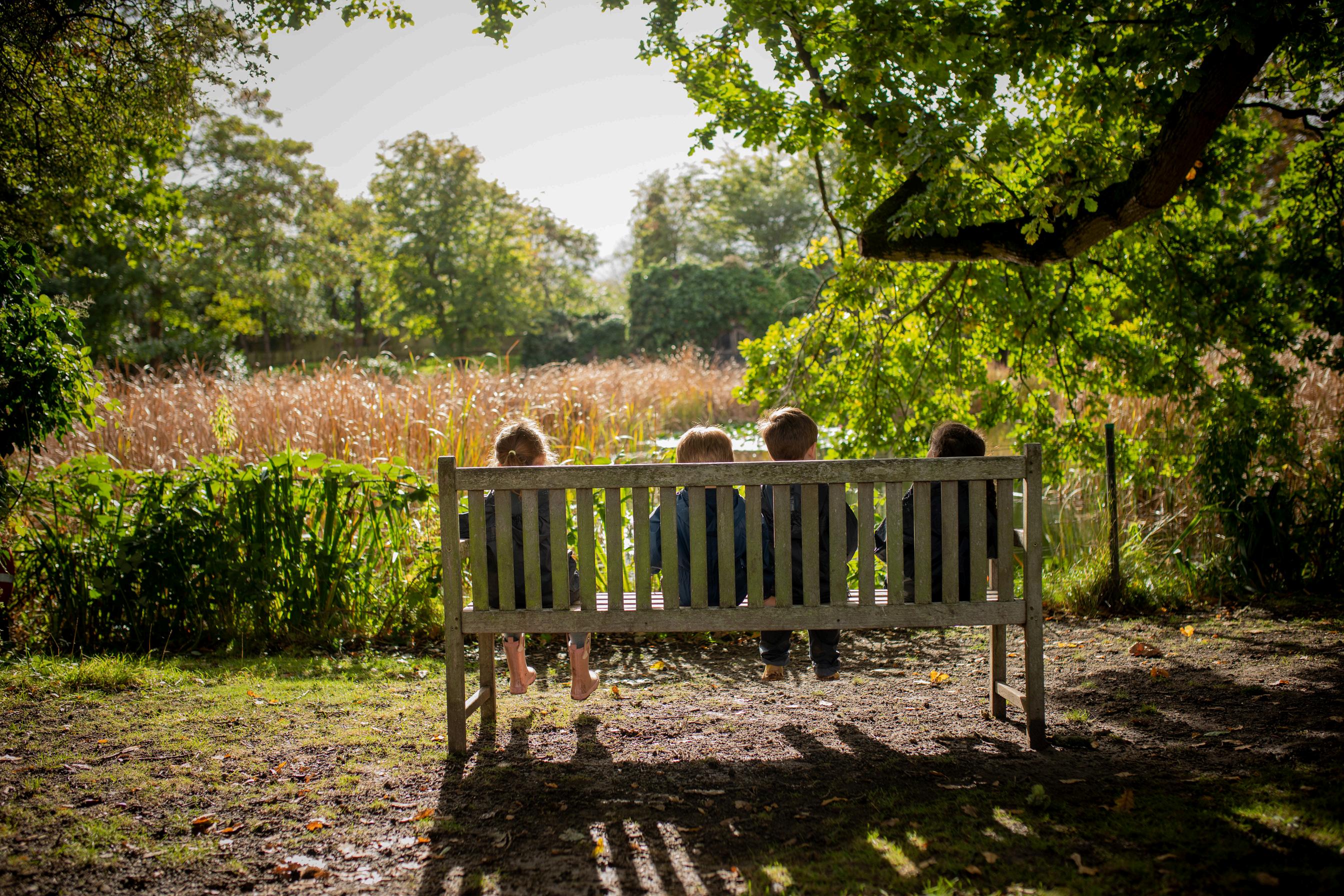

A Summer Forest School Programme fosters confidence and independence through play, discovery, and skill-building The summer term builds on spring’s outdoor learning, offering children opportunities to explore, create, and develop practical skills in nature Activities encourage teamwork, resilience, and environmental awareness through hands-on experiences Safety remains a priority, with sun protection, clear tool-use guidelines, and risk assessments Engaging families through workshops and events enriches this memorable outdoor learning experience
Topics and Activities:
Nature Discovery: Bug hunts, tree ID, and pond dipping.
Bushcraft & Shelter Building: Den making, knot-tying, and safe fire lighting.
Outdoor Cooking: Campfire recipes.
Creative Arts: Leaf pressing, mud painting, and nature weaving.
Sensory & Mindfulness: Barefoot walks, quiet sit spots, and nature mandalas.
Water Play: Exploring ponds and streams safely.
Team Games & Challenges: Obstacle courses, tracking, and hide-and-seek.
Storytelling & Imaginative Play: Nature-inspired tales and cloud watching.
Term
Autumn 1
Autumn 2
Spring 1
Spring 2
Summer 1
What are we studying?
Safety in the natural environment and taking safe and supervised risks
Observing the changes in weather and in the natural environment for Autumn and Winter
Celebrate Autumn Harvest and Christmas
Building dens and using tools safely
Celebrate Chinese New Year and harvest from community garden to cook a Chinese meal on the open fire
Celebrate National Birdwatching and make bird feeders for winter birds
Fairytales and stories that link to play in the natural environment
Celebrate National Wildlife Day
Observing new changes in the natural environment coming into Spring and planting
Celebrate World Bee Day
Summer 2 Minibeasts, map making and treasure seeking

This term, year 2 will develop pleasure in reading and understanding by learning how to read and discover new sounds [ou], [in], [oi], using the Alpha's method. They will apply phonic knowledge and skills as the route to decoding syllables and simple words. During the lesson, the pupils will learn vocabulary about physical description, personality traits, instruments, leisure, sports, activities. We will discover some grammar rules, such as the present tense of the verbs to be and to have using je/tu/il/elle. They will also reinforce our knowledge of feminine, masculine, singular and plural of nouns.
Year 2 will also develop their cultural knowledge by listening to French stories. Finally, they will hear and watch different authentic audios, videos and sing songs.
Term
Autumn 1
Autumn 2
Spring 1
Spring 2
Summer 1
Summer 2
We will recap our sound learned in Year 2: [a], [e], [i], [o], [u], [ê]. We will learn vocabulary about themselves, politeness, instructions, stationery. We will also develop their cultural knowledge by learning about Loup and listening to French literacy every week.
We will recap our sound learned in Year 2: [s], [l], [p], [m], [n], [f]. We will learn vocabulary about numbers from 20 to 30, colours, weather, daily routine. They will discover some grammar rules, such as beginning to punctuate sentences and using capital letters and full stops. We will also develop their cultural knowledge by learning about Loup and listening to French literacy every week.
We will recap our sound learned in Year 2: [ch], [v], [r], [b], [t], [j]. We will learn vocabulary about pets, animals, countries, nationalities. They will discover the masculine and feminine nouns. We will also develop their cultural knowledge by learning about Loup and listening to French literacy every week.
We will discover the following new complex sounds [an], [on]. They will also discover singular and plural nouns. We will learn vocabulary about professions, workplaces, transports. We will also develop their cultural knowledge by learning about Loup and listening to French literacy every week.
We will discover the following new complex sounds [ou], [in]. We will learn vocabulary about physical description, personality traits. We will discover some grammar rules, such as the present tense of the verbs to be and to have using je/tu/il/elle.
We will discover the following new complex sounds [oi]. We will discover some grammar rules, such as the present tense -er verbs using je/tu/il/elle. We will learn vocabulary about instruments, leisure, sports, activities.

In the Summer term, Year 2 will broaden their understanding of French culture by exploring its influence in Belgium. We will begin by discovering la fête du 1er mai as celebrated in Belgium, where workers' rights are honoured with parades, festive gatherings, and the gifting of lily-of-the-valley flowers, just like in France. We will explore the history of Belgium, through the battle of Waterloo and its impact on the country. We will find out about Belgian music and dance, through the Ghent Festival and the Ommegang Pageant.
The term will conclude with a look at le 21 juillet, Belgium’s National Day, where we will explore how the country celebrates with grand parades, fireworks, and festivities, much like le 14 juillet in France. By the end of the term, students will have a deeper appreciation of the rich cultural connections between France and Belgium.
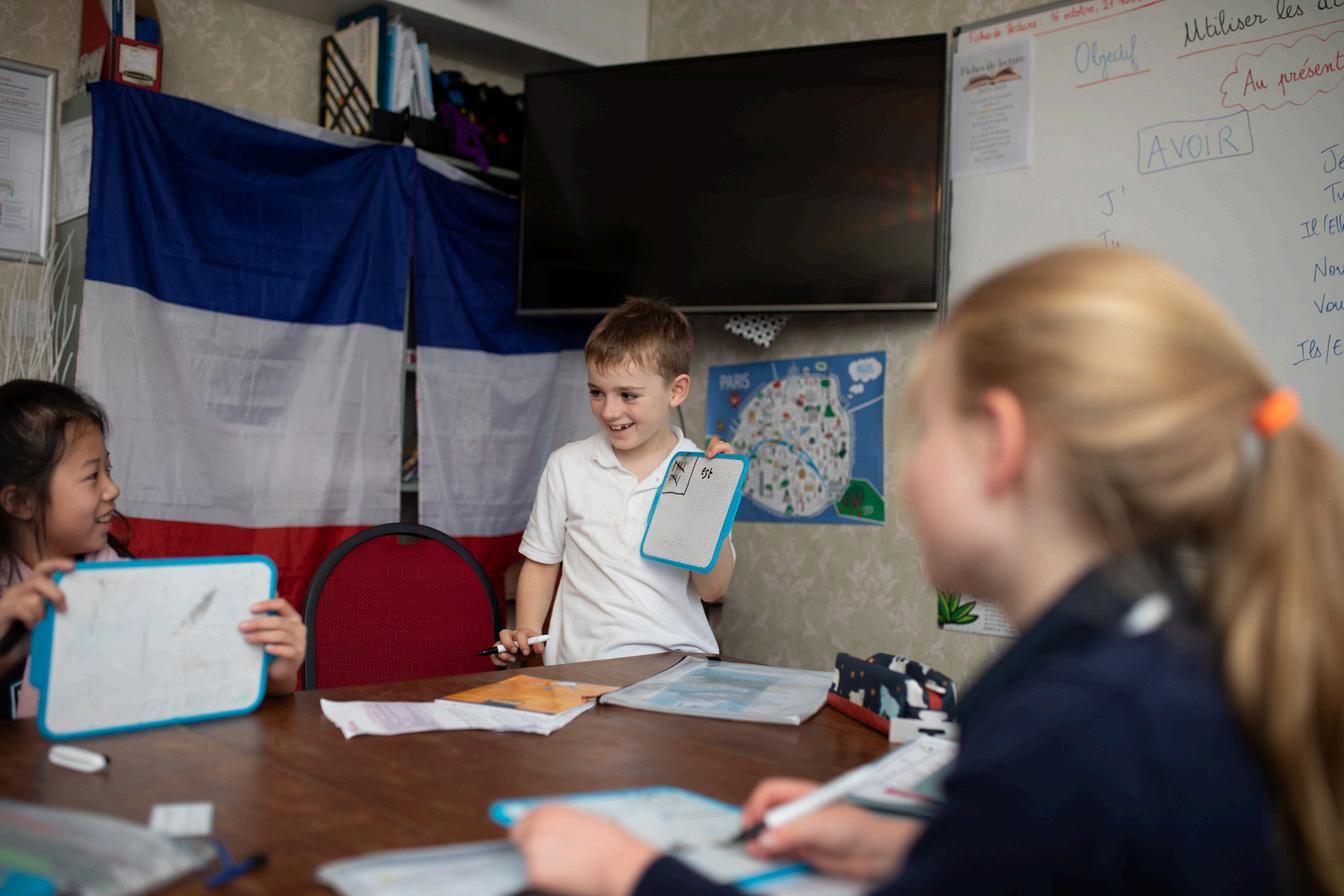
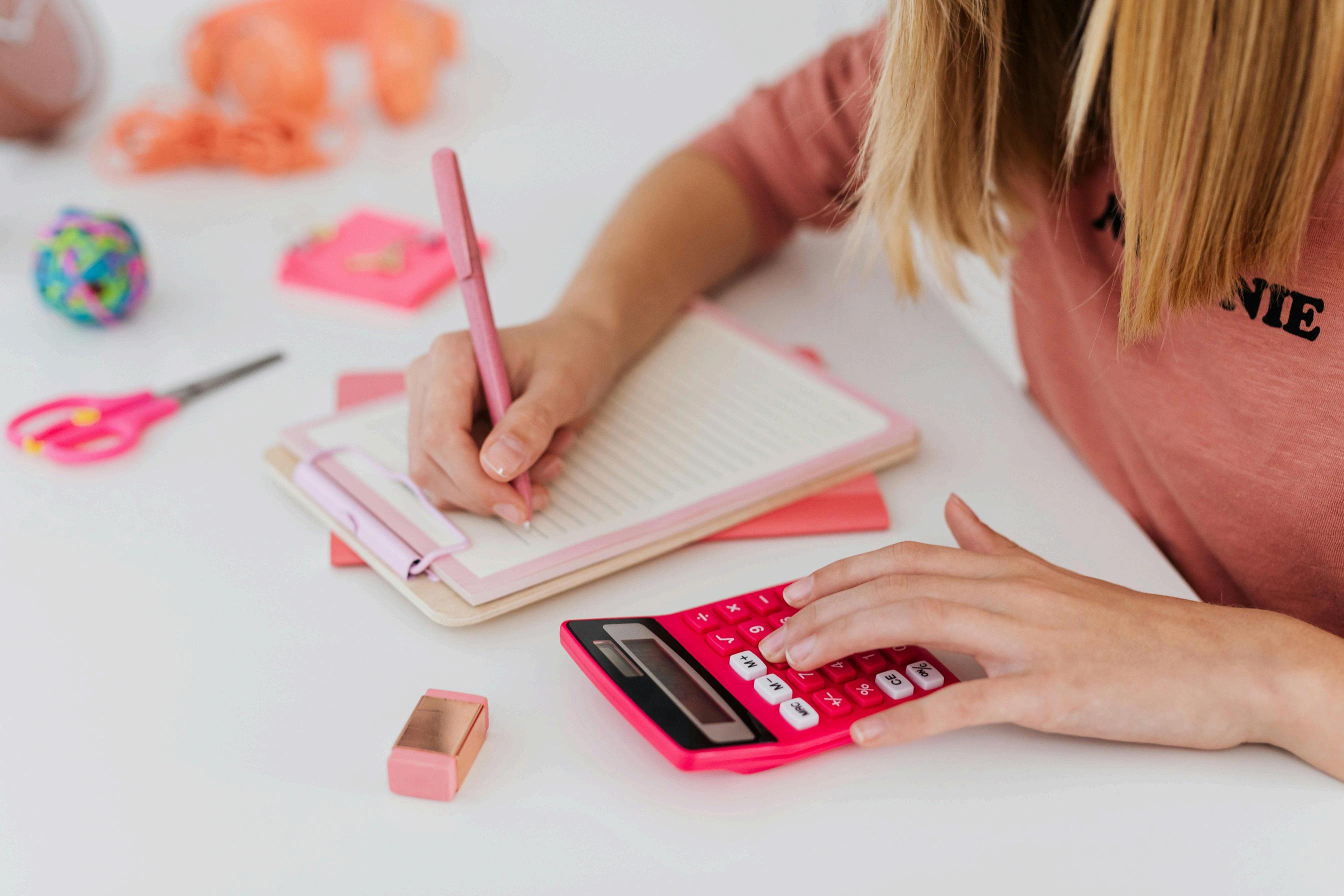

Y2 Maths consolidates and builds on key mathematical knowledge from year 1, but with added complexity and context application. The Summer term will consist of 4 main topics in Maths; Fractions, Time, Statistics, and Position and Direction
Fractions:
Finding a half
Finding a quarter
Finding a third
Time:
O’Clock, half past and quarter past
Tell the time to 5 minutes
Minutes in an hour
Hours in a day
Statistics:
Tally charts
Tables
Pictograms
Position and Direction:
Language of position
Describing movement
Describing turns

Term
Autumn 1 Place Value Addition and Subtraction
Autumn 2 Addition and Subtraction Shape
Spring 1 Money Multiplication and division
Spring 2 Length and height Mass, capacity and temperature
Summer 1 Fractions Time
Summer 2 Statistics Position and direction
What
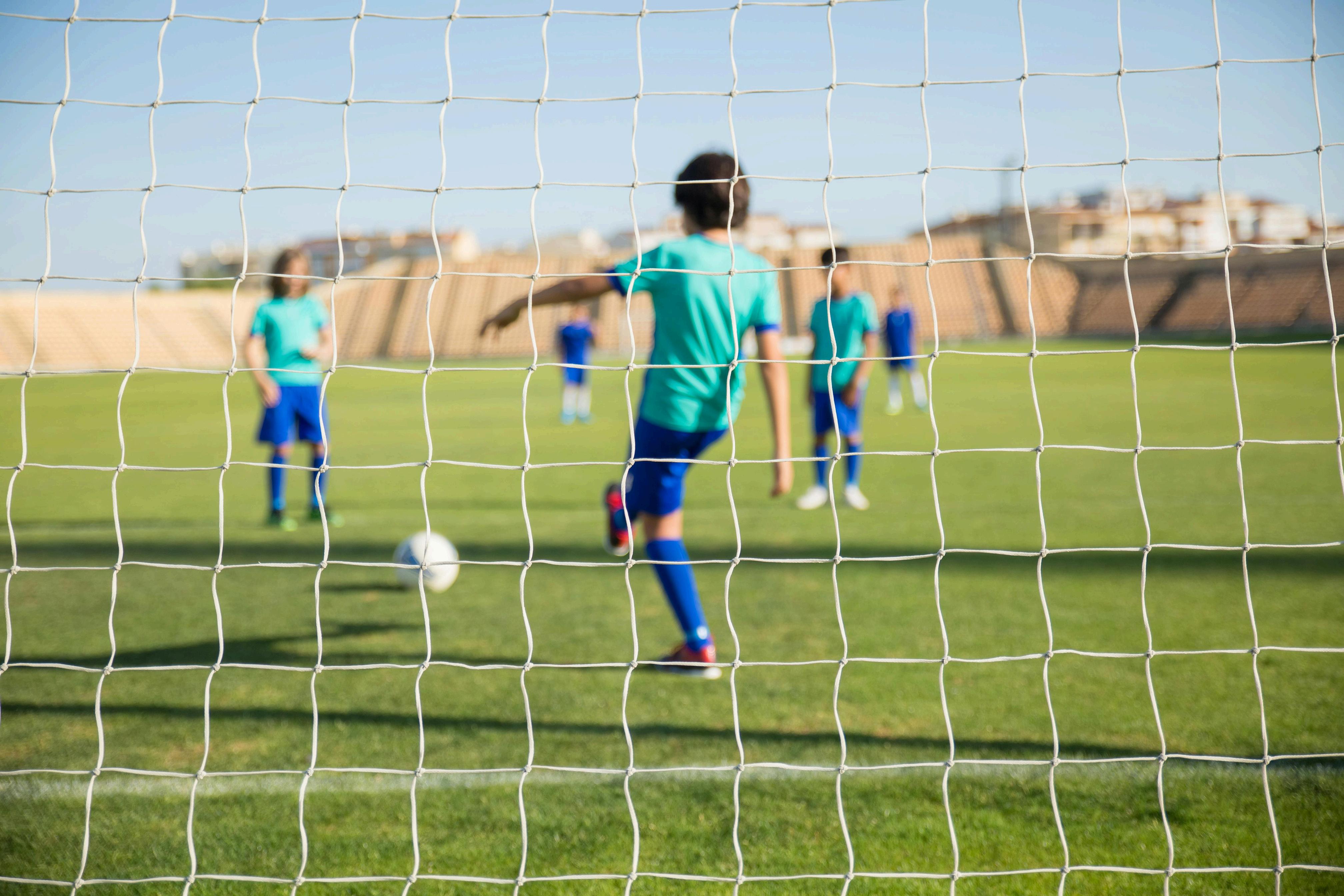

In the Summer Term of 2025, Year 2 students will focus on outdoor activities during Physical Education lessons, specifically aimed at introducing and improving their athletics skills. The goal is to encourage enjoyment, participation, and achievement in athletics, culminating in a Sports Day during the latter half of the term.
Students will learn techniques for running, jumping, and throwing, as well as the fundamental rules for each competitive event. They will explore the differences in skills required for short-distance sprints compared to longer-distance running. Instruction will cover both individual skill development and teamwork, illustrated through activities like relay races.
Additionally, students will play cricket – learning about the basics of bowling, batting and fielding.
As always, children will be encouraged to enjoy sports and maintain an active lifestyle. Emphasis will also be placed on the importance of setting and working towards personal goals in terms of timing and throwing distances. A spirit of healthy competition and fair play will be actively promoted.
Autumn
Spring
Summer
What are we studying?
Football: Passing, shooting, dribbling, conditioned games.
Netball: Passing, shooting, attack vs defence, positions and conditioned games
Gymnastics: balances, body shapes, travel, jumps and rolls
Games: balance, coordination, agility, throwing and catching.
Cricket: throwing, catching, batting, bowling and fielding
Athletics: sack race, long jump, javelin throw, obstacle race, relay, 60m sprint.
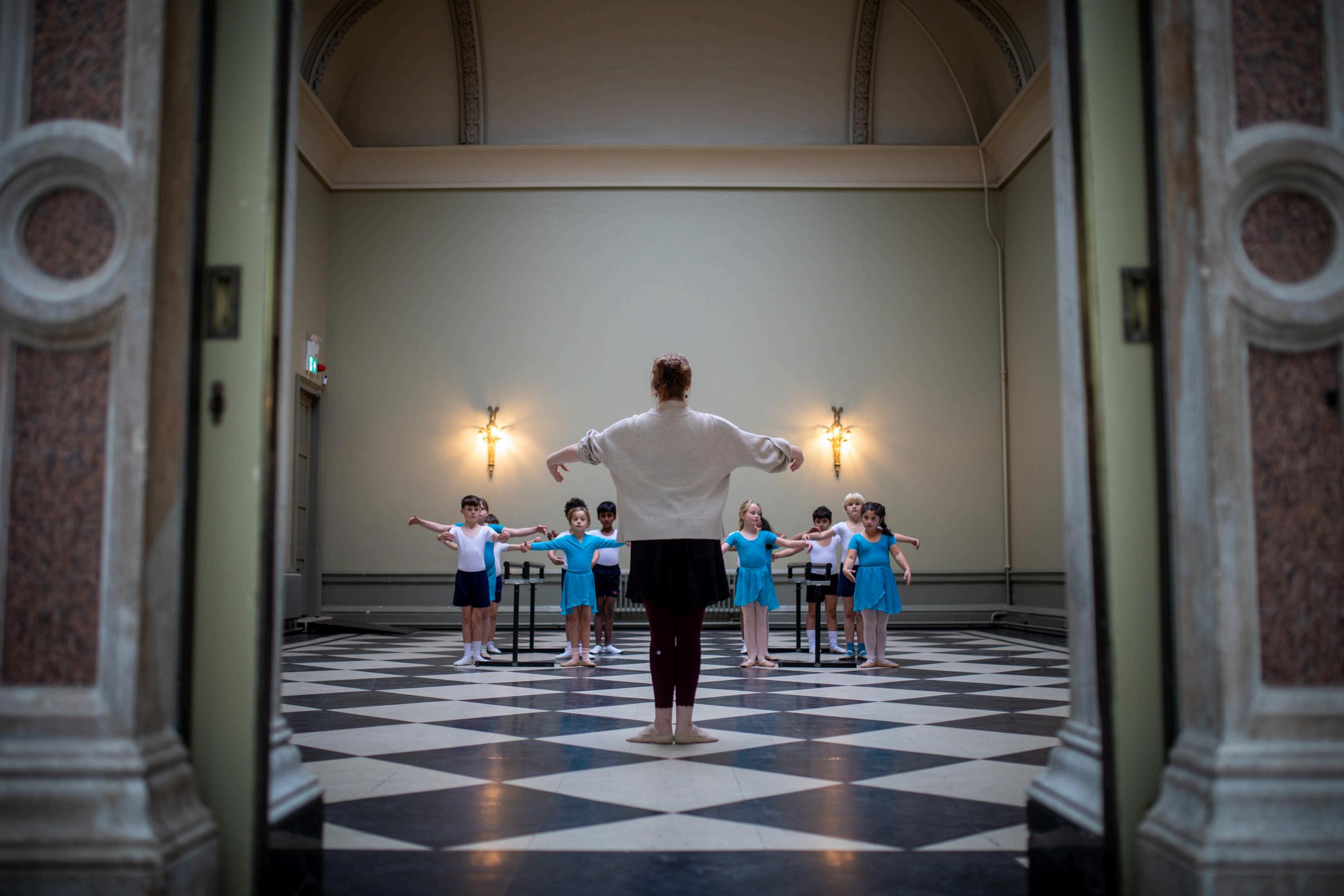

This term students in year 1 – 4 will be preparing for their showcase on the 12th June around the theme of Fairy Tales.
Throughout the year, there will also be numerous recitals and concerts, providing students with platforms to display their musical abilities and talent.
At Hampton Court House, we believe that the performing arts are integral to our school community. Therefore, students will actively participate in various performances throughout the year. These performances form the backbone of our curriculum. We are committed to offering inclusive opportunities that allow every student to showcase their talents.
To prepare for these performances students will focus on developing spatial awareness, musicality, vocal, physical, and character skills to enhance their performance abilities. They will learn stage craft and understand how to engage an audience.
Additionally, we place a strong emphasis on collaborative and creative skills, which are essential for every child's growth. Our classes incorporate engaging games and activities designed to foster teamwork, improve peer interaction, and develop the ability to follow directions. Students are encouraged to contribute creative suggestions through music, movement, and dialogue, ensuring a wellrounded arts education at Hampton Court House.
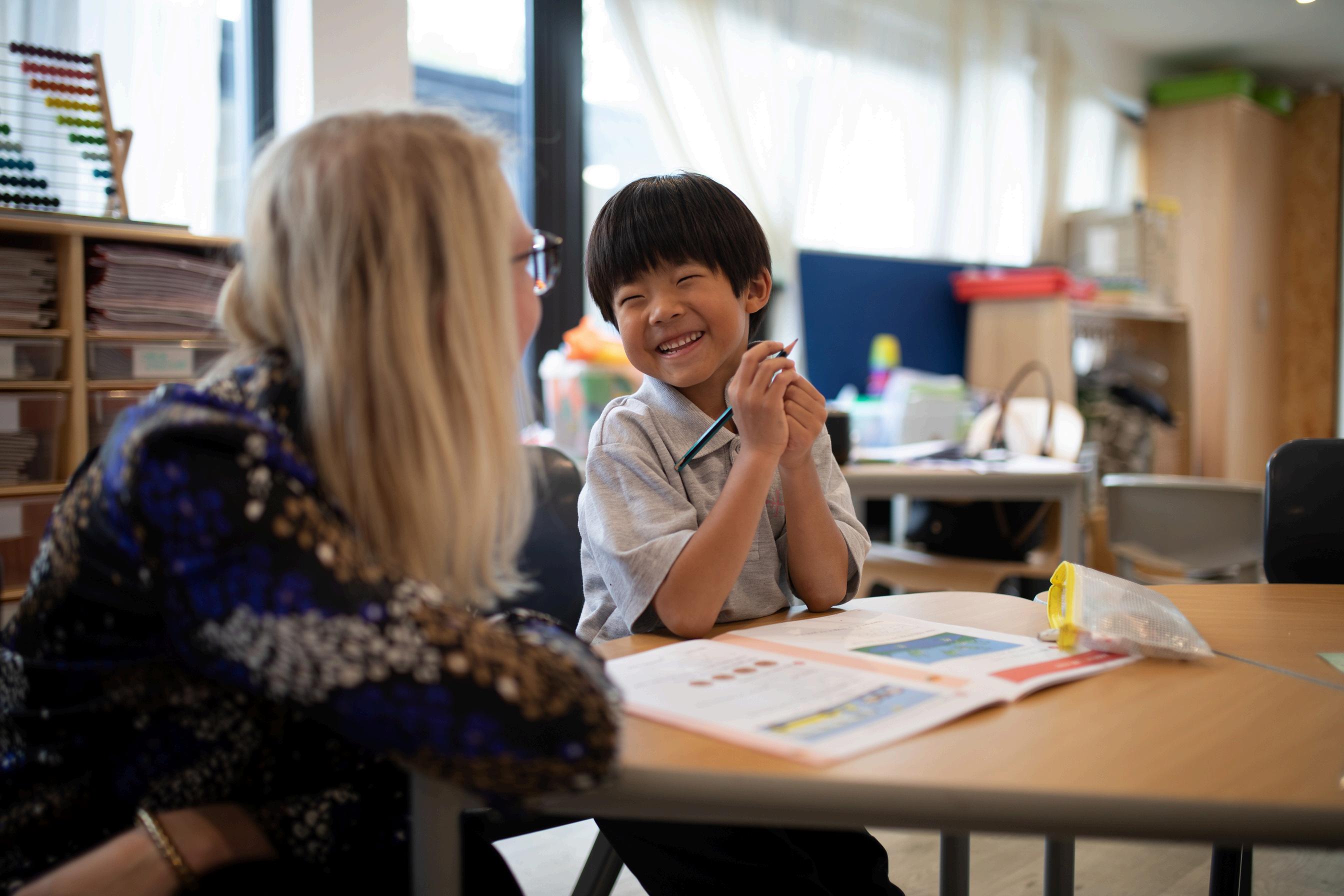

TWe will begin in the first half term with ‘Relationships’, which looks at the themes of families, keeping safe – exploring physical contact, friends and conflict, secrets, trust and appreciation and celebrating my special relationships. In the ‘Changing Me’ topic, we will look at life cycles in nature, growing from young to old, how my body changes, boys’ and girls’ bodies and assertiveness. The topics are explored in an age-appropriate way, and all lesson plans and resources will be made available to parents at the start of each half term. Each of the lessons is delivered with a mindful approach, meaning there is time for thinking, discussing and reflecting.
Please note that you can request any lesson resources for PSHE at any time if you would like to look at how a particular topic is taught.
We aim to make all PSHE sessions as relevant to the students and their current needs and concerns, therefore out content is changeable, and suggestions and feedback are welcome at any time from students and parents.
How it will be assessed
PSHE lessons are predominantly discussion based, with some written tasks for deeper comprehension and application. At the end of each lesson, the students will complete self-reflection sheets for teachers to monitor understanding and adapt future teaching. Teachers keep track of the students’ levels and understanding of the different elements of PSHE across the year.
What are we studying?
Being Me in my World
Hope and fears for the year
Autumn 1
Rights and responsibilities
Rewards and consequences
Learning charter
Dreams and Goals
Goals to success
My learning strengths
Spring 1
Summer 1
Learning with others
A group challenge
Relationships
Families
Keeping safe – exploring physical
contact
Friends and conflict
Secrets
Trust and appreciation
Autumn 2
we studying?
Celebrating Difference
Boys and girls
Why does bullying happen?
Standing up for myself and others
Diversity
Celebrating difference and still being friends
Healthy Me
Being healthy
Spring 2
Being relaxed
Medicine safety
Healthy eating
Changing Me
Life cycles in nature
Summer 2
Growing from young to old
Girls’ and boys’ bodies
Assertiveness
